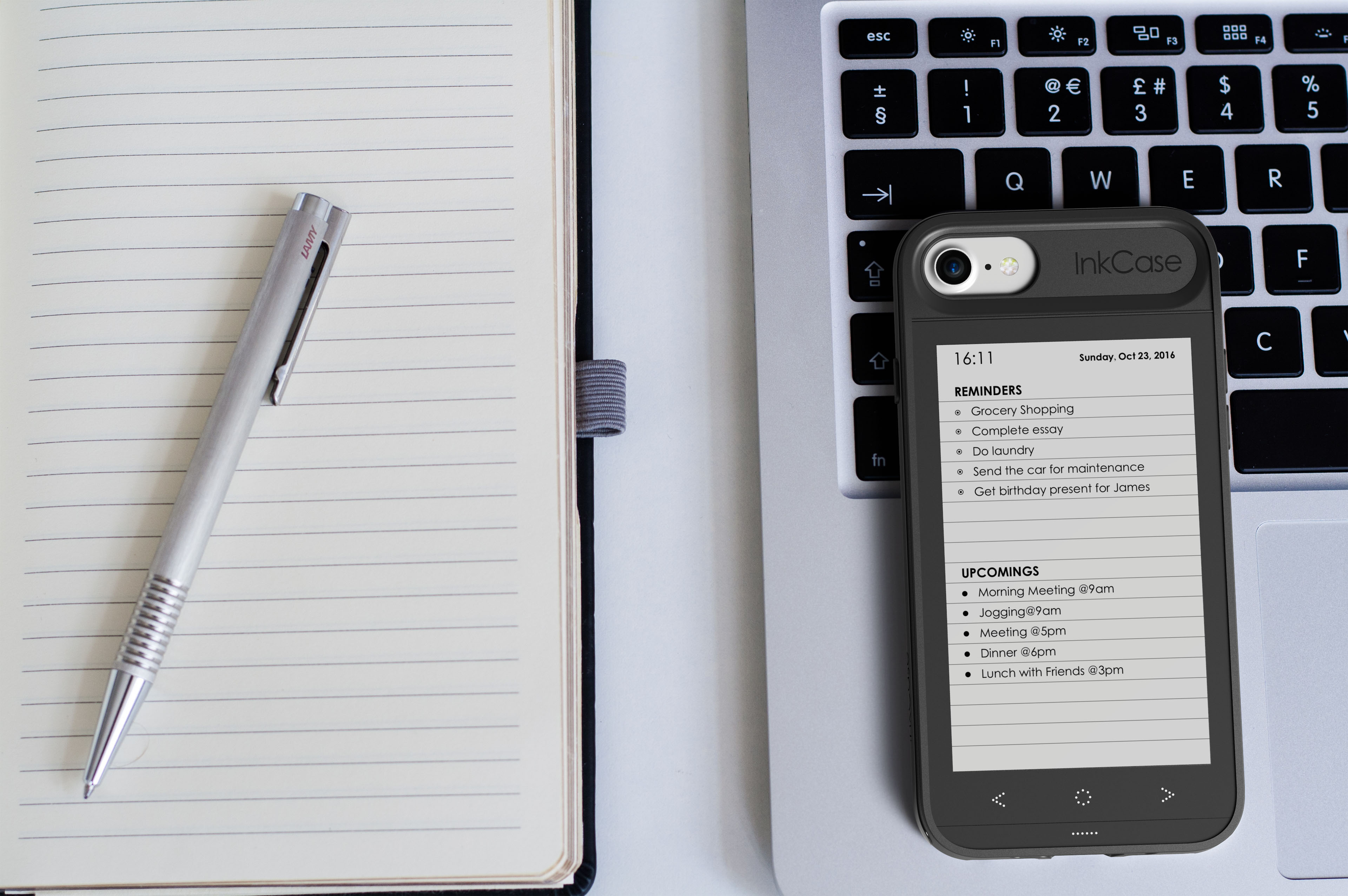Nowadays mobile device hybrids are all the range as firms come up with all sorts of interesting combinations. One such example is Oaxis’ InkCase which transforms your iPhone into an e-reader. It adds a second screen to the back of your phone, allowing you to read anywhere, any time.
 | |
| Never forget another errand again with Inkcase! |
Thanks to this trend, E Ink has gained more interest as companies try to improve their products in terms of power consumption, speed and functionality. In fact, just recently Onyx International has revealed a rather interesting prototype – its Onyx Boox Typewriter which is essentially a 2-in-1 E Ink laptop. Yup, you read that right. Onyx has managed to combine an E Ink display with a full fledged laptop, not merely a tablet!
So what’s the big deal with E Ink screens? Well, not only do they consume much less power than LCD and AMOLED screens, they are also much gentler on our eyes. One charge can last a typical e-reader for weeks! However, E Ink screens are also more limited in terms of video playback, colour display and the refresh rate. This has as such limited the usage of E Ink to e-readers mostly. Onyx however, thinks that the Onyx Boox Typewriter may just be the gamechanger.
What is it?
The Boox Typewriter is actually a rather unconventional Android device. It uses a old 1GHz Cortex-A9 processor with 1 GB of RAM and 16 GB of storage. The device also runs the older Android 4.0 version. Unlike your usual e-readers, the Onyx Boox Typewriter has a metal body and hence looks and even feels like your average 2-in-1 detachable laptop. The most notable difference is that the Boox has a 9.7-inch 1280×825 E Ink display. This allows the Boox to be used as an e-reader when detached from the keyboard. It doubles as a word processor, black and white web browser, and more with a screen that is easy on the eyes. The device also supports an electromagnetic (EMR) pen, allowing users to scribble on the text.
Onyx is marketing the Boox as the perfect tool for people who work on the move and need to type outside with minimal eye strain. The device will definitely also be useful for students and bookworms too! That being said, Onyx has to resolve the problems caused by the E Ink display. The incompatibility of E Ink’s extra slow refresh rate with the user’s fast typing is one such issue. Also the weight of the metal frame can be cumbersome too. Since Boox is only expected to launch until early 2018, here’s to hoping that Onyx uses the time they have to work out all the kinks!
See also: LCD screens: Shedding light on the damage done
(Published on Oaxis, 27 April 2017)
No comments:
Post a Comment